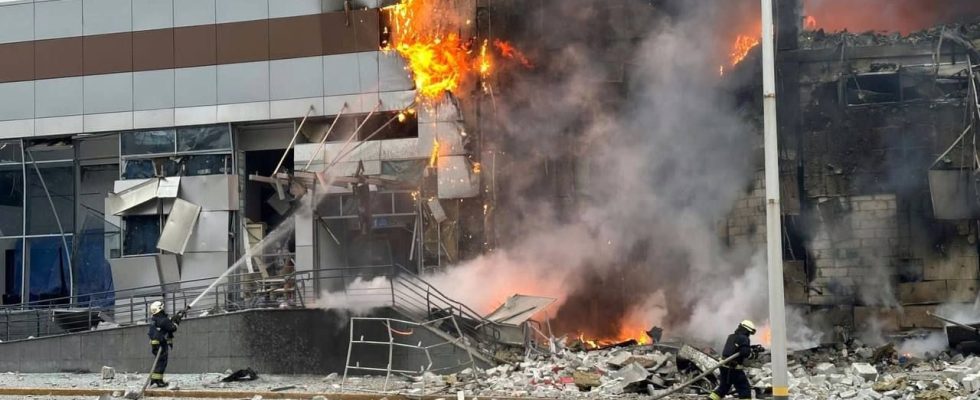Vladimir Putin continues to test Western support for Ukraine. This Friday, December 29, the Russian army deployed “a record number of missiles” on several Ukrainian cities, including the capital kyiv. A day of “appalling attacks” having caused the deaths of at least 39 soldiers and civilians, lamented the UN Security Council, meeting urgently at the request of Ukraine the same evening.
Around 6 a.m., several cities in the country, including Kharkiv (in the northeast), Lviv (in the west) and Odessa (south) were hit by a hail of Russian missiles. Explosions also rang out in kyiv. Air alerts across the country were sounded around 7 a.m. Since then, Ukraine has been counting its dead, with a toll that is increasing by the hour: at least 39 people have been killed and 160 injured according to a latest count communicated this Saturday noon, while the bodies continue to be extracted rubble in kyiv.
“This is the most massive missile attack” carried out by the country led by Putin, excluding the first days of the war, the army spokesman told AFP. air, Yuri Ignat. Russia used “almost all types of weapons in its arsenal” for this round of strikes, Ukrainian President Volodymyr Zelensky said. According to the kyiv General Staff, more than 160 missiles were fired, including cruise missiles and Shahed explosive drones. The anti-aircraft defense managed to shoot down 88 missiles and 27 drones. The strikes hit essential infrastructure, schools, a maternity ward, as well as industrial, military and civilian installations.
Will the attack reactivate Western aid?
These bombings have been widely condemned internationally, while Ukraine has been urging its Western allies for two months not to let financial and military aid run out of steam. Friday evening, it was the United Nations Security Council which raised its voice. Urgently gathered at the request of Ukraine and around thirty countries, the members of the UN denounced “terrible aggressions” and “appalling attacks”, “increasingly frequent on the part of the Federation of Russia,” said Deputy Secretary Mohamed Khiari.
Across the Atlantic, American President Joe Biden saw this new attack as an additional reason to release new budgetary and military aid to Ukraine, again urging his Congress to “act without delay”. This week, the United States finally delivered a new tranche of 250 million dollars (225 million euros), the last without a new vote in Congress, which refuses for the moment to allocate more aid. “Unless he takes urgent action in the new year, we will not be able to continue sending the weapons and air defense systems that Ukraine needs to protect its people,” warned the leader in a press release. “The objective of Russian President Vladimir Putin remains unchanged: he seeks to annihilate Ukraine and subjugate its people,” the American representative to the UN said on Friday.
NATO “airspace violation”
The United Kingdom also reacted very quickly after this massive air attack: the British government immediately announced the dispatch of 200 additional air defense missiles. “These widespread attacks on Ukrainian cities show that Putin will stop at nothing to achieve his goal of eradicating freedom and democracy,” Prime Minister Rishi Sunak said. Russian President Vladimir Putin is “testing Ukraine’s defenses and the West’s determination,” Defense Minister Grant Shapps assured in a press release this Saturday, December 30. On the side of the 27, Hungarian Prime Minister Victor Orban vetoed a new EU aid package in mid-December, a problem that the Europeans hope to resolve at a summit in early February 2024.
These reactions were surely motivated by another event: the passage in the skies of Poland – a NATO member country – for three minutes of a Russian cruise missile. The Minister of Foreign Affairs summoned the Russian Federation’s charge d’affaires in Poland on Friday evening, urging him to “explain the incident of violation of the airspace of the Republic of Poland.” An accusation rejected by Moscow, which announced on Saturday morning that it refused to give an explanation in the absence of “concrete evidence” that it was a Russian missile, recalling the episode of November 2022 during which a Ukrainian missile had fallen on the Polish village of Przewodow, killing two civilians and briefly sparking fears of an extension of the conflict.
